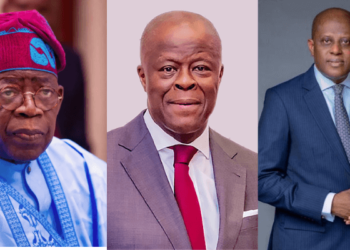
The International Monetary Fund has advised the Federal Government to urgently revisit tax holidays and exemptions given to companies. It specifically urged Nigeria to implement a reform that would see it phase out tax holidays and exemptions eroding the Company Income Tax base.
Successive governments had granted controversial tax holidays and waivers, which were described as forms of corruption
The Washington-based Fund also asked the Federal Government to increase taxes imposed on tobacco and alcohol, emphasising the need for socially responsible fiscal adjustment based on revenue mobilisation.
The Senior Resident Representative and Mission Chief for Nigeria, Africa Department, IMF, Mr. Amine Mati, who said this in Lagos on Saturday, also stated that the Federal Government needed to reduce interest payments on borrowed funds to about 30 per cent of the country’s revenue.
According to Mati, there is also a need for Nigerian policymakers to move beyond voluntary compliance measures in tax matters in order to mobilise non-oil revenue and increase the fiscal space.
The IMF chief spoke while making a presentation at a forum organised by the Chartered Institute of Bankers of Nigeria.
In the presentation, he stressed the need to embark on full Value Added Tax and broaden it.
On monetary policy, Mati welcomed the recent “de facto” tighter monetary policy stance and said there was a need to “stop the financing of the central bank to the government and strengthen the monetary policy framework.”
On exchange rate, the IMF chief told the Central Bank of Nigeria that the “recent introduction of the Investors and Exporters FX window is welcomed and there is a need to address market segmentation; remove FX restriction; simplify/unify the FX market; and improve operations of the FX market in line with market fundamentals.”
Mati said there were significant economic headwinds amid challenges and elevated risks for the country.
He noted that the Federal Government’s Economic Recovery and Growth Plan was an important step forward, adding that important policies and steps had been taken but policy action remained urgent.
“Comprehensive policy package is needed, including front-loaded non-oil revenue mobilisation, greater exchange rate stability.”
A former President of the Chartered Institute of Taxation of Nigeria, Chief Mark Dike, described tax as a compulsory levy imposed by the government on individuals and companies for the provision of public goods and services.
As a result, he said he was of the opinion that the government should create an enabling environment and provide general incentives for companies, adding that tax waivers and holidays could create a lack of level playing field.
According to him, the government can reduce the tax rate to enable every company and individuals to pay.
In terms of using tax to generate employment in some sectors, Dike said questions had arisen on the number of jobs being created in such sectors.
The Director-General, West Africa Institute for Economic Management, Prof. Akpan Ekpo, said the government might still need to give little tax holidays in order to encourage foreign direct investments and domestic investments in certain sectors.
He, however, said that such tax holidays and exemptions should be given for only a short and definite period of time, and to only very few credible companies that had proven records.
According to him, tax holiday and waivers have been abused in Nigeria and the government needs to watch the manner such are given.
On the need to increase taxes on alcohol and tobacco, Ekpo stated that it was necessary owing to the health hazards they pose.
An economic analyst and Chief Executive Officer of Cowry Asset Management Limited, Mr. Johnson Chukwu, said there was a need for the Federal Government to overhaul the entire tax holiday system, especially in the pioneer sectors, because the current system allowed corruption.
According to Chukwu, there is a need to still give tax holidays and exemptions but it has to be only for a short period on an initial investment.
Source: Punchng













